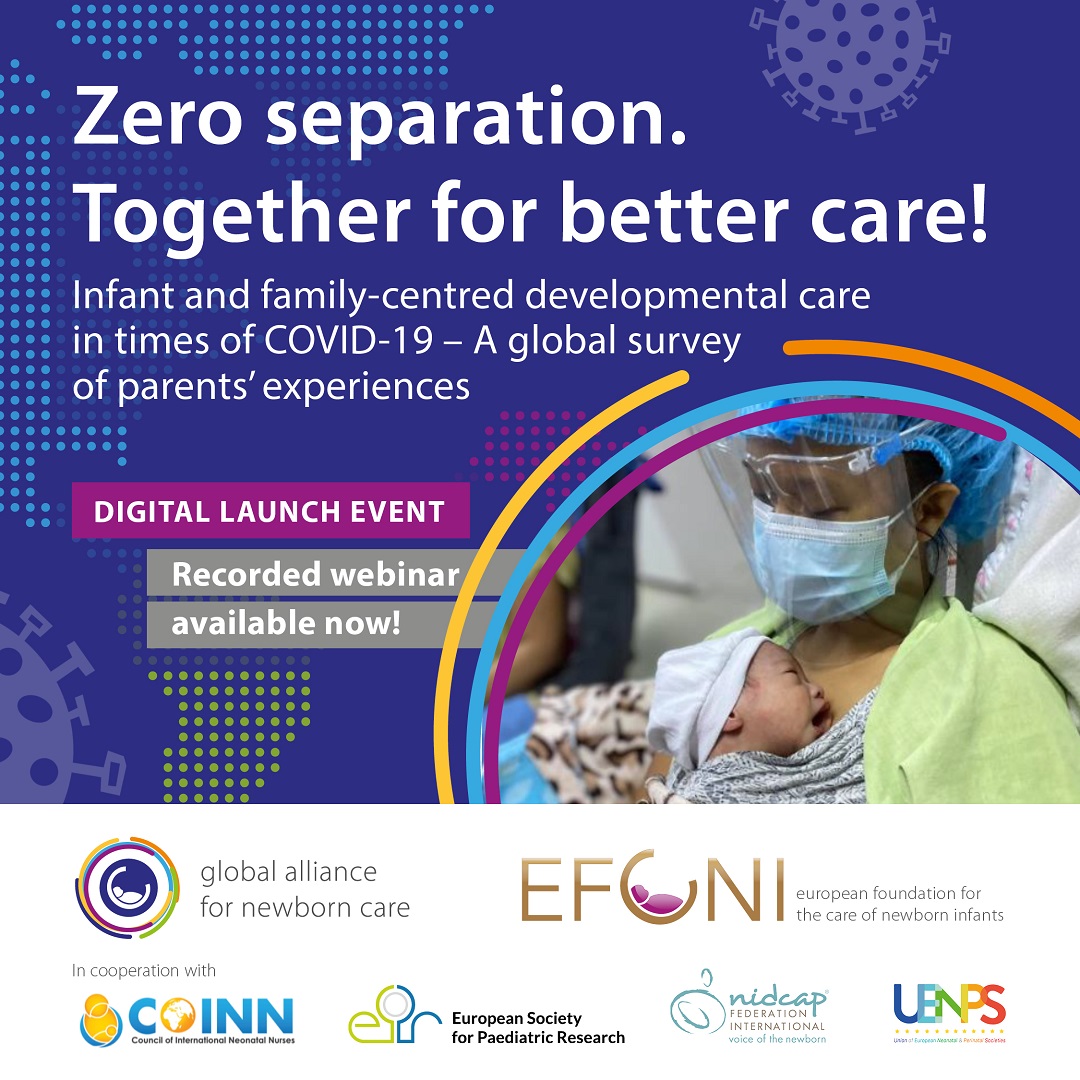
Zero separation. Together for better care! Infant and family-centred developmental care in times of COVID-19 – A global survey of parents’ experiences
The COVID-19 pandemic has created exceptional challenges, especially for the care of preterm, sick and low birthweight infants. While most restrictions were necessary to stem virus transmission, some have impacted the provision of healthcare, including infant and family-centred developmental care (IFCDC). Hospitalised newborns, together with their families, have been severely affected by separation policies with so far unforeseen short and long-term consequences. We therefore call for a zero separation policy and the consistent application of an IFCDC approach.

The global study and project report: “Zero separation. Together for better care! Infant and family-centred developmental care in times of COVID-19 – A global survey of parents’ experiences” was launched during a digital live event. The alarming key findings of the global survey were presented, highlighting the very personal experiences of parents worldwide in times of the COVID-19 pandemic.
Find the full programme HERE
Find the recorded event HERE
We thank our panellists and all the participants for this great session!
The study: This global online-survey was conducted to explore parents’ experiences with regard to the disruptions and restrictions on different elements of IFCDC during the first year of the COVID-19 pandemic. Parents of newborns in need of special/intensive care shared their experiences regarding prenatal care, parental access, infant nutrition and breastfeeding, health communication, and mental health.
Results: Overall, 2103 parents from 56 countries participated in the survey. More than half of the participants were not allowed to have a support person present during the birth of their child. A further alarming finding was the strict separation of parents and their newborns; one in five parents indicated that no-one was allowed to be present with the hospitalised newborn. Country-specific differences could be identified, showing that several elements of IFCDC seem to be more affected in some countries than in others.
Global findings published in The Lancet’s EClinical Medicine: https://bit.ly/3iGFmo1
Country-specific findings published in BMJ Open: https://bit.ly/3Jg2jbS
Commentary in the Lancet Child & Adolescent Health: https://bit.ly/2YZgwcg
Full project report: download HERE
Project report – short version: download HERE
Please find our press release below
For further information, please contact: research@efcni.org
Acknowledgements: This project was a joint initiative by EFCNI and GLANCE. The research was carried out in cooperation with the COVID-19 Zero Separation Collaborative Group – representatives of national parent organisations and the professional healthcare societies COINN, ESPR, NIDCAP, and UENPS. EFCNI received an earmarked donation by Novartis Pharma AG in support of this study.
We would like to express our greatest appreciation to the representatives of national parent organisations and healthcare professionals who have supported us with translating the survey into 23 languages. Thank you!
In collaboration with
